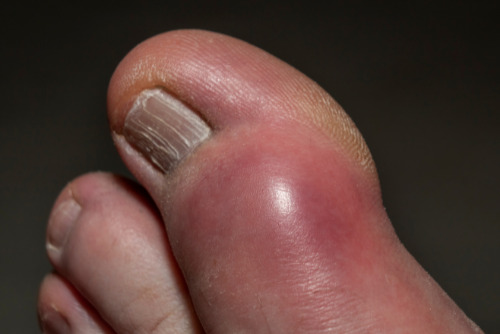Gout
This article does not constitute as medical advice.
If you are experiencing symptoms, contact your doctor or make an appointment.
This article does not constitute as medical advice.
If you are experiencing symptoms, contact your doctor or make an appointment.
Gout is an arthritic condition that is the result of a build-up of uric acid. As the acid builds, urate crystals form and accumulate at the joint. It usually affects only one of the big toes, causing severe pain, redness, and swelling. These attacks mainly occur suddenly in the middle of the night and can typically be treated with medication. However, if left untreated, gout can lead to more severe conditions such as kidney stones. This condition can be preventable through lifestyle habits such as diet. Gout is more common in men than women. Still, women are likely to develop this condition after menopause.
This ailment is caused by an accumulation of too much uric acid in the blood. When we break down purine chemical compounds, our bodies produce this acid. If there is more uric acid in our bodies than we can excrete, inflammation known as gout occurs. There are several causes of gout, such as:
This condition can be difficult to self-diagnose because symptoms are similar to other conditions such as hyperuricemia. Here are some common signs that you have developed gout:
Prevention
Treatment
